The looming Brexit catastrophe
The worst-case scenario is looking increasingly likely
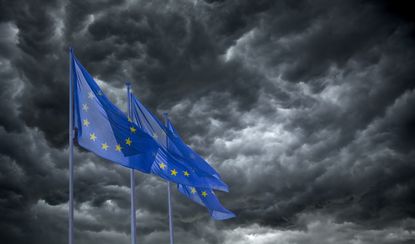

Britain is still trying to figure out how to packs its bags.
Back in 2016, Britain voted to leave the European Union, but the departure won't take place until March 2019. The big question in the interim has been how exactly "Brexit" will go down.
While the moment of truth remains a few months off, a worst-case scenario looks increasingly likely.
Subscribe to The Week
Escape your echo chamber. Get the facts behind the news, plus analysis from multiple perspectives.

Sign up for The Week's Free Newsletters
From our morning news briefing to a weekly Good News Newsletter, get the best of The Week delivered directly to your inbox.
From our morning news briefing to a weekly Good News Newsletter, get the best of The Week delivered directly to your inbox.
British Prime Minister Theresa May and many other mainstream leaders would prefer a "soft" Brexit. This would entail hanging on to some aspects of the old Britain-EU relationship, particularly around trade: the extra-low tariffs and common regulations that make for the EU's open market.
But compromise being a two-way street, the EU won't agree unless Britain also holds onto other rules, particularly around open immigration. That's anathema to the British hardline conservatives who wanted Brexit in the first place. They push for a "hard" Brexit — a clean break with the EU's trade regime, with no holdover rules or arrangements from the old relationship.
The thing is, even a hard Brexit requires all parties involved to actually agree to a plan ahead of time. But May's own majority coalition is riven by disagreements between the Hard Brexiters and the Soft Brexiters. Nor would it be particularly easy for either side to break off and do a deal with the out-of-power Labour Party. Then there's the EU, which has to agree to the final terms as well and is feeling none-too-generous about the whole affair.
That's all increasing the possibility that the March 2019 deadline is reached without an agreement in place. That's the third option: the "no deal Brexit." It's the aforementioned worst-case scenario.
Liam Fox, Britain's international trade secretary, recently said he thinks the chances of a no-deal Brexit are 60-40. A few days ago, Bank of England Gov. Mark Carney told the BBC, "I think the possibility of a no-deal is uncomfortably high at this point." And May herself is planning a meeting of all her top Cabinet ministers next month specifically to discuss how to handle such an outcome.
So what would a no-deal Brexit actually look like? Basically, it would be a hard Brexit with a healthy dollop of chaos.
From a macro-economic standpoint, both outcomes would involve economic ties between Britain and the EU reverting to the rules of the World Trade Organization (WTO) — the defaults that govern in the absence of any special trade agreement. Many WTO tariffs are as low as 2 or 3 percent. But they can be as high as 10 percent for cars, or 20 to 40 percent for many agricultural products. That would mean higher prices and a fair amount of trade disruption.
Various projections of the long-term effect on Britain's aggregate economy anticipate that a hard Brexit or a no-deal Brexit would do some damage: per-person economic losses of 2.6 percent per year, by one estimate. Other studies found a 2.9 percent drop in total jobs by 2030, and that Britain's overall economy would be 2.2 to 3.5 percent smaller by that same year than otherwise. (Though it's worth mentioning Brexit could have some beneficial effects for Britons as well.)
But the real problem with a no-deal Brexit isn't macro-economic damage over the long term. It's logistical chaos over the short term.
With a no-deal Brexit, rules governing everything from food standards to medicines to aviation and more would suddenly disappear in March 2019. And there would be nothing to replace them.
Almost a third of Britain's fresh food supply is imported from the EU, for example. The possibility of a no-deal Brexit is raising concerns that many of those shipments would get stuck at the border, with no clear rules or processes for getting them across. Then they'd rot in the ensuing confusion.
Businesses' passporting rights would also vanish: British companies couldn't sell their services in the EU, or EU companies in Britain, without first securing licenses from each individual country. Estimates suggest that around 130,000 British businesses that export to the EU would suddenly find themselves facing customs for the first time.
Arrangements governing aviation would also go away, potentially grounding planes until it's all sorted, leaving both air travel and shipping in chaos. And the same problems of inconsistent rules and standards that could gum up food shipments could gum up medicine shipments as well.
Literally dozens of EU agencies currently run all these matters for Britain and other EU members alike. With a no-deal Brexit, Britain would suddenly have to replace all these functions with its own agencies and staff overnight.
And none of this even gets into the precarious legal situation many EU nationals living in Britain would find themselves in. Nor does it cover what will be done about the border between Ireland and Northern Ireland; the former will remain in the EU, the latter will exit with the rest of the United Kingdom.
Obviously, it's not at all clear how bad this scenario could be, or how long it could take to sort out. But if you're wondering why reports are filtering in of the British government stockpiling food and medicine and other supplies, this is why. Basically, a no-deal Brexit could create a godawful mess.
No one wants a no-deal Brexit, of course. But it wouldn't be a pleasant outcome for the EU either. And May and Fox and others also see keeping the threat of no deal live as a way to gain negotiating leverage over the EU.
In short, the Soft Brexiters, the Hard Brexiters, and the European Union are in a three-way game of chicken. The assumption is that someone will swerve in time for an actual orderly Brexit to be arranged.
But the closer the deadline gets, the less time there is to actually make that deal. And no one's blinked yet.
Create an account with the same email registered to your subscription to unlock access.
Sign up for Today's Best Articles in your inbox
A free daily email with the biggest news stories of the day – and the best features from TheWeek.com
Jeff Spross was the economics and business correspondent at TheWeek.com. He was previously a reporter at ThinkProgress.
-
 Nuclear near-misses
Nuclear near-missesThe Explainer From technical glitches to fateful split-second decisions, the world has come to the brink of nuclear war more times than you might think
By Rebecca Messina, The Week UK Published
-
 What is cloud seeding and did it cause Dubai's severe rainfall?
What is cloud seeding and did it cause Dubai's severe rainfall?The Explainer The future is flooded
By Devika Rao, The Week US Published
-
 American Airlines pilots are warning of a 'significant spike' in safety issues
American Airlines pilots are warning of a 'significant spike' in safety issuesIn the Spotlight The pilot's union listed 'problematic trends' they say are affecting the airline's fleet
By Justin Klawans, The Week US Published
-
 Geopolitics and the economy in 2024
Geopolitics and the economy in 2024Talking Point The West is banking on a year of falling inflation. Don't rule out a shock
By The Week UK Published
-
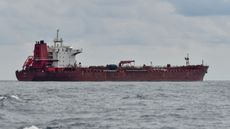 US-led price cap on Russian oil 'almost completely circumvented'
US-led price cap on Russian oil 'almost completely circumvented'Speed Read 'Almost none' of seaborne crude oil from Moscow stayed below $60 per barrel limit imposed by G7 and EU last year
By Harriet Marsden, The Week UK Published
-
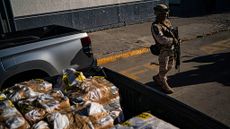 Mexico's Sinaloa cartel bans fentanyl, reportedly under pain of death
Mexico's Sinaloa cartel bans fentanyl, reportedly under pain of deathSpeed Read The top exporter of fentanyl to the U.S. is apparently looking to diversify as law enforcement turns up the heat
By Peter Weber, The Week US Published
-
 The threat posed by bonds to the global financial system
The threat posed by bonds to the global financial systemUnder The Radar The worst bear market in a century is unleashing huge strain on parts of the financial system
By The Week Staff Published
-
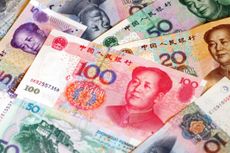 China: a superpower’s slump
China: a superpower’s slumpThe Explainer After 40 years of explosive growth, China’s economy is now in deep distress — with no turnaround in sight
By The Week Staff Published
-
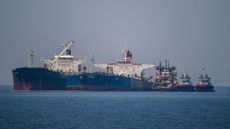 Are Western sanctions working on Russia’s growing economy?
Are Western sanctions working on Russia’s growing economy?Today's Big Question IMF forecasts Russian growth but one expert says the West must be patient in bid to deter Putin
By Arion McNicoll Published
-
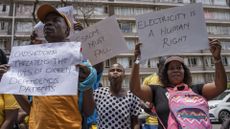 South Africa’s energy crisis explained
South Africa’s energy crisis explainedfeature Electricity blackouts lead to rising crime and economic hardship and add to pressure on ANC
By The Week Staff Published
-
 India’s geopolitical aspirations in 2023
India’s geopolitical aspirations in 2023feature The emerging Asian superpower is showing ‘growing confidence’ on the world stage
By Chas Newkey-Burden Published